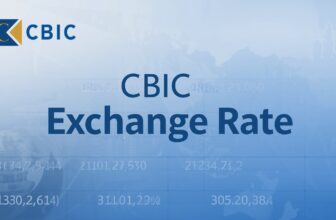
Let’s examine a common but understated facet of forex trading. Here, we unravel the intricacies behind a pressing question: “Why do forex traders lose money?” Explore the common pitfalls and discover the keys to sustainable success in the dynamic world of currency exchange.
Forex traders often lose money due to their own actions and decisions. Key reasons include poor risk management, failure to adapt to market conditions, excessive expectations, insufficient capital, trading addiction, and not following a trading plan.
Key Takeaways:
- Poor risk management is a major cause of forex trading losses.
- Setting realistic expectations and having sufficient capital are important factors for success in forex trading.
- Following a consistent trading plan and avoiding impulsive trading behavior are crucial for profitability.
- Proper risk management, adaptation to market conditions, and disciplined trading are essential for long-term success in forex trading.
Why Forex Traders Lose Money
In the expansive arena of forex trading, where over $5 trillion is exchanged daily, a significant majority of novice traders find themselves facing financial losses. This article aims to delve into the specific challenges that lead to these setbacks, offering insights and strategies for avoiding common pitfalls.
Traders need to understand the importance of managing risk properly, adapting to the ever-changing market environment, setting realistic expectations, and having sufficient capital to trade effectively. Additionally, following a consistent trading plan and avoiding impulsive trading behavior are crucial for success in forex trading.
The Harsh Reality of Forex Trading
Forex trading, touted as a lucrative venture, presents aspiring traders with a challenging reality that cannot be underestimated. Research originating from South Africa reveals a stark truth: an overwhelming majority of beginners, accounting for approximately 70% to 80%, find themselves on the losing end of the forex market. This statistic serves as a poignant reminder that success in forex trading is far from guaranteed and requires a comprehensive understanding of the challenges that lie ahead.
The journey into forex trading often begins with high hopes and aspirations for financial gain. However, the reality of the market’s complexities and the need for a nuanced approach can be harsh. Many novice traders, driven by the allure of quick profits, fail to grasp the intricacies of currency markets, leading to substantial financial losses. For instance, a trader entering the market without a well-defined strategy may fall victim to emotional decision-making, resulting in detrimental consequences.
Example: High Leverage
One notable example of the harsh reality involves traders who succumb to the temptation of high leverage. While leverage can amplify gains, it also magnifies losses. Inexperienced traders, enticed by the potential for significant profits, might overextend themselves and face devastating financial consequences if the market moves against them. This underlines the importance of responsible risk management and the potential pitfalls of underestimating the risks associated with leveraged trading.
Misinformation and Unrealistic Expectations
Moreover, the prevalence of misinformation and unrealistic expectations contributes to the harsh reality of forex trading. Some enter the market with the misconception that it is a quick path to wealth. However, success in forex is a gradual process that demands continuous learning, discipline, and resilience. Those who fail to align their expectations with the realities of the market are often met with frustration and disappointment.
In essence, the harsh reality of forex trading stems from a combination of factors, including inadequate preparation, emotional decision-making, and the allure of quick gains. Acknowledging these challenges and adopting a measured and informed approach is crucial for aspiring traders to navigate the intricate landscape of forex markets successfully. It is only through a realistic understanding of the obstacles that traders can hope to mitigate risks and position themselves for long-term success in this dynamic and competitive arena.
The Trap of Undercapitalization in Forex Trading
Forex trading, while holding the promise of substantial returns, often unravels for traders who fall prey to the perilous trap of undercapitalization. This critical issue stems from the allure of controlling large sums with minimal investment, leading to a fragile financial foundation that can crumble under the weight of market fluctuations.
Consequences of Excessive Leverage
- Traders with small accounts often use excessive leverage, amplifying trade sizes.
- High leverage can lead to substantial gains if the market moves favorably.
- Equally, high leverage can result in significant losses if the market moves unfavorably.
- Undercapitalization tips the balance between risk and reward, risking financial stability.
The Role of Greed
Greed, a prevalent emotion in the financial markets, often exacerbates the undercapitalization problem. Traders with limited funds may succumb to the desire for quick wealth and, in the pursuit of high returns, take on trades that far exceed the size their accounts can safely accommodate. This creates a scenario where a small adverse market movement can wipe out a significant portion of the trader’s capital, highlighting the vulnerability inherent in undercapitalized positions.
To further illustrate, consider a trader with a £1,000 account who decides to leverage it at a ratio of 100:1. This means they can control a position size of £100,000. While the allure of controlling such a large position is tempting, a mere 1% adverse move in the market results in a loss equal to the entire account balance. This exemplifies the fragility of undercapitalization and the heightened susceptibility to market volatility.
Managing Funds for Capital and Risk Equilibrium
Successful forex trading demands a careful balance between capital and risk, and undercapitalization disrupts this equilibrium. Traders must recognise that the forex market, despite its potential for profit, demands a prudent and well-capitalised approach. Adequate capital provides a buffer against market fluctuations, allowing traders to weather temporary setbacks and position themselves for sustainable success.
In essence, undercapitalization and the associated financial risk pose significant threats to traders navigating the forex markets. By understanding the perils of insufficient capital and resisting the allure of excessive leverage, traders can fortify their financial positions and enhance their resilience in the face of the unpredictable market dynamics.
Common Pitfalls Leading to Losses
Emotion-Driven Trading
Emotional decision-making stands as a significant hurdle for traders. The inability to control emotions can result in cutting profitable trades short and letting losing trades run unchecked. Successful traders employ disciplined trading plans to mitigate emotional influences and achieve a balance between wins and losses.
Absence of a Strategic Trading Plan
A lack of a well-constructed trading plan is akin to setting sail without navigation. Successful traders meticulously document plans, incorporating risk management rules and defining expected ROI. Without such a plan, traders may find themselves susceptible to market whims, increasing the likelihood of significant losses.
Inability to Adapt to Market Changes
Proactive planning for every trade, including scenario analysis and strategic moves, is crucial. Markets evolve, presenting new opportunities and risks. Traders who fail to adapt to changing conditions may find their strategies obsolete, leading to unforeseen losses.
Learning Through Trial and Error
While experience is valuable, learning through trial and error in forex can be prohibitively costly. Novice traders are advised to leverage the experience of successful traders through formal education or mentorship, avoiding unnecessary losses and gaining insights from proven strategies.
Unrealistic Expectations
Success in forex is a gradual process that demands recurrent efforts. Traders seeking quick riches often deviate from disciplined trading, risking more capital than justified by potential profits. Patience and a realistic understanding of profit accumulation over time are essential for sustainable success.
Challenges Unique to Forex Trading
Of the several financial markets, forex trading stands out for its unique set of challenges that can confound even the most seasoned investors. Understanding these distinctive hurdles is paramount for traders aiming to navigate the intricate world of currency exchange successfully.
The Influence of Leverage
Forex trading’s distinctive feature lies in the extensive use of leverage. While leverage can magnify profits, it equally heightens the risks involved. For instance, a trader employing 100:1 leverage can control a position valued at £100,000 with just £1,000 in their account. While this offers the potential for substantial gains, it also means that a small adverse market movement can result in significant losses, exemplifying the double-edged sword of leverage in forex trading.
Leverage and Risk Management
Professional traders recognise the delicate balance required when using leverage. Maintaining a leverage ratio of 2:1, where the trader trades one standard lot (£100,000) for every £50,000 in their account, exemplifies a prudent approach. Excessive leverage not only magnifies losses but also increases transaction costs as a percentage of the account value. Understanding and managing the impact of leverage on risk is crucial for a trader’s long-term success.
Macroeconomic and Political Risks
Unlike many other financial markets, forex is uniquely susceptible to macroeconomic and political risks. Economic indicators, geopolitical events, and policy changes can trigger abrupt market movements. For example, a surprise political announcement or an unexpected economic report can cause rapid and unpredictable shifts in currency values. Traders in the forex market must be vigilant and adaptable to navigate these inherent challenges.
Intraday Market Dynamics
Forex markets operate 24 hours a day, five days a week, providing ample opportunities for intraday trading. However, the constant availability of the market introduces challenges related to volatility and liquidity. Traders need to adapt their strategies to different market sessions, considering factors such as major economic releases and overlapping trading hours to capitalise on optimal trading conditions.
Limited Market Regulation
Compared to traditional stock markets, the forex market has a decentralised structure with no central exchange. While this decentralisation fosters accessibility, it also leads to a lack of uniform regulation. Traders must exercise caution when choosing brokers and ensure they operate within a well-regulated environment to safeguard their investments.
The challenges unique to forex trading demand a nuanced and adaptable approach from traders. Navigating the intricacies of leverage, understanding the impact of macroeconomic factors, and adapting to the continuous nature of the market are crucial for success. By acknowledging and preparing for these distinct challenges, traders can position themselves to thrive in the dynamic and competitive landscape of forex trading.
Trading Addiction and Emotional Decisions
Trading in the dynamic world of forex can be an exhilarating experience, marked by short-term intervals and volatile currency pairs. However, a perilous pitfall that often ensnares traders is the interplay between trading addiction and emotional decision-making.
Chasing the Price
The allure of quick profits in forex can trigger a phenomenon known as “chasing the price.” This behavioural pattern involves traders making impulsive decisions without a clear strategy, akin to gambling rather than disciplined trading. For instance, a trader witnessing a sudden market movement might hastily enter a trade without a predefined plan, driven solely by the fear of missing out on potential gains.
The Psychological Impact
Forex trading, with its fast-paced nature, can induce a rush of adrenaline, leading to a heightened emotional state. This emotional turbulence, if not managed, can result in irrational decision-making. Consider a scenario where a trader, fueled by excitement, deviates from their established strategy and abandons risk management practices, exposing themselves to substantial losses.
Patience as a Virtue
In the face of rapid market fluctuations, cultivating patience becomes a trader’s greatest asset. Resisting the urge to constantly engage in trading and refraining from impulsive decisions during adverse market conditions are crucial. Traders who view patience as a strength rather than a weakness are better positioned for sustainable success.
Overcoming Trading Addiction
For those already entangled in the web of trading addiction, seeking expert guidance becomes imperative. Educational webinars hosted by experienced mentors can shed light on the psychological aspects of addiction and offer strategies for breaking the cycle. Recognising the need for external support is the first step towards regaining control.
The Importance of an Exit Strategy
Every trader should enter the market armed with a clear exit strategy. Knowing when to step back, especially during periods of heightened emotional intensity, is essential. This disciplined approach ensures that traders preserve their account balance and avoid succumbing to impulsive decisions that can lead to long-term setbacks.
The intersection of trading addiction and emotional decisions poses a significant challenge for forex traders. Understanding the psychological impact, cultivating patience, and implementing clear strategies are vital for navigating this perilous terrain. By acknowledging the risks and adopting disciplined practices, traders can enhance their resilience and make informed decisions in the ever-evolving world of forex trading.
In conclusion, the challenges faced by forex traders are multifaceted, ranging from emotional pitfalls to the technicalities of leverage. Successful navigation of the forex market requires a disciplined approach, continuous learning, and a strategic mindset. By understanding and addressing these challenges, traders can enhance their prospects for sustained success in the dynamic world of forex trading.
Poor Risk Management: A Major Cause of Forex Trading Losses
One of the main reasons why forex traders lose money is poor risk management. Improper implementation of risk management strategies can lead to quick and substantial losses. Traders need to understand and utilize tools such as stop-loss and take-profit orders to mitigate risk. Risk management in forex trading is crucial for preserving capital and avoiding unnecessary losses.
Traders often make common mistakes in forex trading when it comes to risk management. They may neglect to set proper stop-loss orders, leaving their positions vulnerable to unfavorable market movements. Furthermore, traders may fail to place take-profit orders, missing out on potential profits. Without a well-defined risk management strategy, traders are exposed to excessive risk and increased chances of incurring losses.
Strategies for Risk Management
To minimize forex trading losses and enhance profitability, traders should focus on developing effective strategies. One such strategy is to establish appropriate risk/reward ratios. By carefully assessing potential profits against potential losses, traders can ensure that the potential rewards outweigh the risks involved. This approach helps traders make informed trading decisions based on calculated risk assessments.
Another strategy to minimize losses is to diversify trading positions. Instead of concentrating all capital in a single trade, traders can spread their risk across multiple positions. This way, if one trade results in a loss, it can be offset by profits from other trades. Diversification helps protect traders from substantial losses that could occur if all capital were invested in one position.
A disciplined approach to risk management is essential for long-term success in forex trading. Traders should strictly follow their risk management plan and avoid impulsive trading decisions driven by emotions or instinct. Having a well-defined trading plan, including risk management guidelines, helps traders stay focused and make rational decisions based on predetermined parameters.
In summary, poor risk management is a major cause of forex trading losses. Traders must prioritize strategies to minimize forex trading losses by implementing proper risk management techniques. This includes using tools like stop-loss and take-profit orders, establishing risk/reward ratios, diversifying trading positions, and maintaining discipline. By adopting these risk management practices, forex traders can mitigate losses and improve their chances of long-term profitability.
Failure to Adapt to Market Conditions: A Pitfall for Forex Traders
One of the most common reasons for losing money in forex trading is the failure to adapt to market conditions. Forex markets are dynamic and constantly changing, requiring traders to be flexible and adjust their strategies accordingly. Failing to adapt can lead to poor trading decisions and financial losses.
Traders need to stay informed and keep a close eye on market trends. Tracking the average volatility of currency pairs and understanding how different factors impact the market can provide valuable insights for trading success. Additionally, paying attention to financial news releases can help traders anticipate potential market movements and adjust their positions accordingly.
“The trader’s ability to adapt to changing market conditions is crucial for long-term profitability.”
It is important for traders to differentiate between trending and ranging markets. In trending markets, where prices move in a consistent direction, traders can implement strategies that capitalize on the trend. On the other hand, in ranging markets, where prices fluctuate within a certain range, traders can focus on range-bound trading strategies.
Key Takeaways:
- Failure to adapt to market conditions is a common pitfall for forex traders.
- Traders should track average volatility, understand market trends, and stay updated with financial news releases.
- Differentiating between trending and ranging markets can help traders adjust their strategies accordingly.
Conclusion
In conclusion, forex traders often find themselves losing money in the market due to their own actions and decisions. However, by implementing effective strategies, traders can significantly minimize their risk and increase their chances of success.
One of the key strategies to prevent forex trading losses is proper risk management. Traders should set clear stop-loss and take-profit orders to limit potential losses and protect their capital. Additionally, considering risk/reward ratios can help ensure that potential profits outweigh potential losses.
Adapting to market conditions is also crucial for profitability. Traders should stay informed about market trends, track average volatility, and pay attention to financial news releases. By adjusting their strategies accordingly, traders can make more informed trading decisions and avoid unnecessary losses.
Finally, having a disciplined trading plan and realistic expectations is essential. Traders should avoid impulsive trades and stick to a consistent strategy. Additionally, having sufficient capital is crucial for effective trading. By following these strategies and maintaining a disciplined mindset, traders can increase their chances of success and minimize losses in the forex market.
FAQ
Why do forex traders lose money?
Forex traders lose money due to their own actions and decisions, such as poor risk management, failure to adapt to market conditions, excessive expectations, insufficient capital, trading addiction, and not following a trading plan.
What is poor risk management and why is it a major cause of forex trading losses?
Poor risk management refers to improper implementation of risk management strategies, which can lead to substantial losses. Traders need to use tools like stop-loss and take-profit orders, consider risk/reward ratios, and manage their capital effectively to mitigate risk and increase their chances of long-term success.
How can failure to adapt to market conditions lead to forex trading losses?
Forex markets are constantly changing, and traders need to be able to identify and adapt to these changes. By tracking average volatility, understanding market trends, and paying attention to financial news releases, traders can make informed trading decisions. Failure to adapt can lead to poor decision-making and financial losses.
How can forex traders avoid losing money?
Forex traders can avoid losing money by implementing proper risk management strategies, adapting to market conditions, setting realistic expectations, having sufficient capital, and following a consistent trading plan. It is important to avoid common mistakes, manage risk effectively, and stay disciplined to minimize forex trading losses.

















